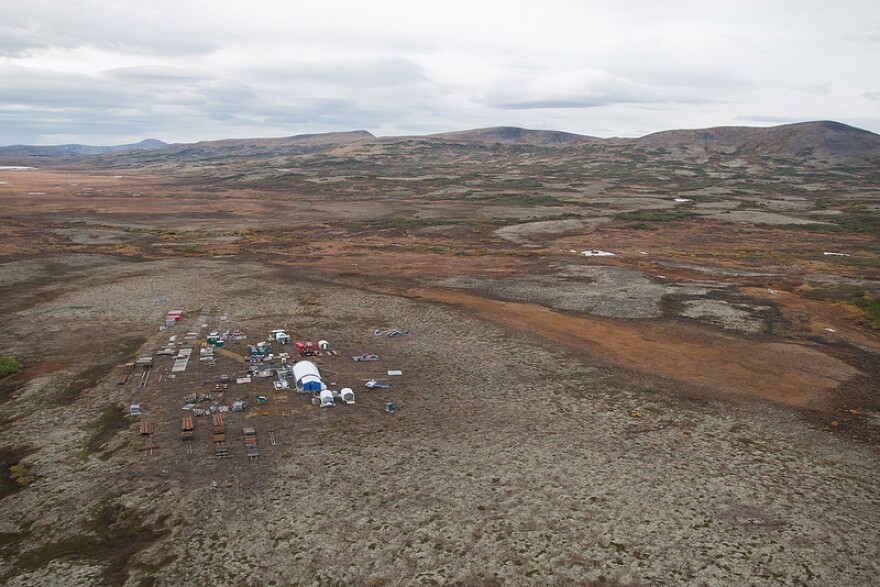The proposed Pebble Mine could make a significant contribution to the Alaska economy according to a leading economist. Scott Goldsmith is a Professor of Economics with the University of Alaska’s Institute of Social and Economic Research. Recently he outlined details of Alaska’s economy for a special publication distributed by the First National Bank of Alaska.
Goldsmith cites a recent study that anticipates the annual value of the output from the proposed Pebble Mine could range between $1.5 to $3-billion dollars. That’s if the Pebble Deposit actually holds the publicized measured and indicated resource, which includes 55-billion pounds of copper and 67-nillion ounces of gold. Goldsmith suggests that total direct and indirect employment from the mine could average over 4.7-thousand during construction and 2.8-thousand during initial production. As part of the recent publication Goldsmith cites a recent survey of mining and exploration companies by the Fraser Institute. The survey asked the companies how mineral endowment and public policy affects exploration investment. Goldsmith notes that Alaska attractiveness improved this year based on availability of labor and skills, the quality of the geological database, and infrastructure. The Fraser Institute ranked Alaska 19th out of 96 regions for mining attractiveness. The highest ranks when to Finland, Sweden, Alberta, New Brunswick and Wyoming. Wyoming, Nevada, and Utah were all ranked higher than Alaska. In the publication Goldsmith notes that the Alaska budget for F-Y 2014, which started on the first of July, totaled $13.2-billion dollars. The operating budget totals over $8.7-billion dollars and the capital budget totals over $1.9-billion. Goldsmith notes that revenues are expected to be $10.6-billion dollars, suggesting the need to draw on reserves to fund the budget for the first time in several years. In the new publication Goldsmith outlines some of the details of an ongoing petroleum property tax assessment controversy between the owners of the trans-Alaska pipeline and several local governments. Goldsmith points out that the owners of the pipeline are putting the assessed value of the pipeline at just $1.2-billion dollars. However, the state’s Assessment Review Board puts the value at$8.7-billion dollars. Goldsmith suggests that if the pipeline value were reassessed downward, the property taxes paid could fall by about 25-percent. You can find Goldsmith’s data on Alaska’s economy on the special website set up by the First National Bank of Alaska at www.alaskaseconomy.org.


